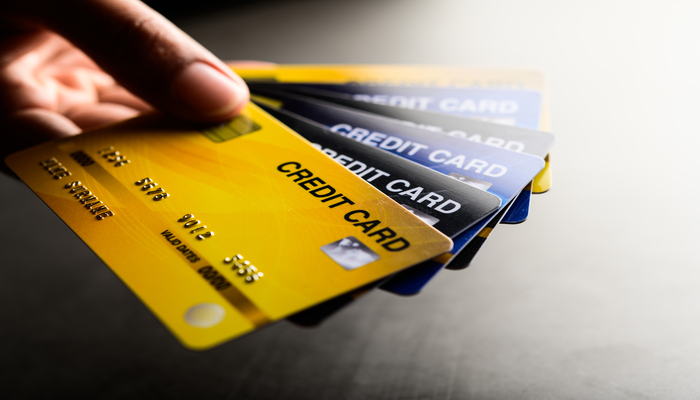Credit cards have become an integral part of modern financial systems, offering convenience and a range of benefits that make them a popular choice for consumers worldwide. Despite some potential drawbacks, the advantages of credit cards can significantly enhance your financial health when used responsibly.
Convenience and ease of use
One of the primary advantages of credit cards is their convenience. Carrying a credit card is much easier than carrying large amounts of cash. Whether you are shopping online, booking a hotel, or dining at a restaurant, credit cards provide a seamless transaction experience. Additionally, credit cards are widely accepted globally, making them an essential tool for travelers.
Building credit history
Credit cards play a crucial role in building and improving your credit history. By using a credit card responsibly—making timely payments and keeping your balance low—you can boost your credit score. A good credit score is essential for securing loans, mortgages, and even favorable interest rates on future credit products. It reflects your creditworthiness and financial responsibility to lenders.
Rewards and cashback
Many credit cards offer rewards programs, including points, miles, or cashback on purchases. These rewards can be redeemed for various benefits such as travel, merchandise, statement credits, or even cash. For example, a credit card might offer 2% cashback on groceries or 1 mile per dollar spent on travel. By strategically using these rewards cards, you can earn significant benefits on everyday purchases.
Fraud protection and security
Credit cards provide enhanced security features that protect against fraud. Most credit cards come with zero liability policies, meaning you won’t be held responsible for unauthorized charges if your card is stolen or compromised. Additionally, credit card companies often monitor transactions for suspicious activity and will notify you if anything unusual is detected. This level of protection is typically not available with debit cards or cash.
Emergency funds
Credit cards can serve as a financial safety net during emergencies. Whether it’s an unexpected medical expense or a sudden car repair, having a credit card allows you to cover these costs immediately without having to deplete your savings. While it’s important to pay off the balance as soon as possible to avoid high-interest charges, the immediate access to funds can be invaluable in urgent situations.
Interest-free periods
Many credit cards offer interest-free periods, typically ranging from 20 to 55 days, depending on the card issuer. This means that if you pay off your balance in full by the due date, you won’t incur any interest charges on your purchases. This feature can be particularly advantageous for managing short-term cash flow without paying extra for credit.
Expense tracking and management
Credit cards provide detailed statements that can help you track and manage your spending. These statements categorize your expenses, making it easier to see where your money is going each month. Many credit card issuers also offer online tools and mobile apps to monitor your spending in real-time. This can be especially useful for budgeting and ensuring you stay on top of your finances.
Enhancing travel experiences
For frequent travelers, credit cards offer numerous benefits that can enhance their travel experiences. Many travel credit cards provide perks such as free checked bags, priority boarding, airport lounge access, and travel insurance. Additionally, travel rewards cards often offer higher points or miles on travel-related purchases, allowing you to earn free flights, hotel stays, or upgrades faster.
Purchase protection
Credit cards often come with purchase protection benefits that safeguard your purchases against damage, theft, or loss. This protection typically lasts for a certain period (e.g., 90 days) from the date of purchase and can reimburse you for the cost of the item. Some credit cards also extend the manufacturer’s warranty on products, providing additional peace of mind when making significant purchases.
Building financial discipline
Using a credit card responsibly can help build financial discipline. By making regular payments and keeping track of your spending, you can develop good financial habits that contribute to overall financial health. Understanding the importance of paying off your balance in full each month can also prevent you from falling into debt and paying unnecessary interest charges.
Access to special offers and discounts
Credit card issuers often partner with merchants to offer exclusive discounts, promotions, and offers to cardholders. These can range from discounts on dining and shopping to access to special events and experiences. Taking advantage of these offers can provide significant savings and enhance your lifestyle.
Balance transfer options
Some credit cards offer balance transfer options, allowing you to transfer high-interest debt from one card to another with a lower interest rate or even a 0% introductory rate for a specified period. This can be a useful tool for managing and paying down debt more efficiently. However, it’s important to be aware of any fees associated with balance transfers and ensure you pay off the balance within the promotional period.
Building business credit
For business owners, credit cards can help build business credit separate from personal credit. Business credit cards often come with features tailored to business needs, such as higher credit limits, expense tracking tools, and rewards for business-related purchases. Building strong business credit can open up additional financing opportunities for your business in the future.
Understanding the advantages of credit cards is essential for leveraging their benefits while avoiding potential pitfalls. From convenience and rewards to building credit and providing financial security, credit cards offer numerous advantages that can enhance your financial well-being. However, it’s important to use them responsibly, pay off balances in full each month, and be mindful of interest rates and fees. By doing so, you can enjoy the many benefits that credit cards have to offer and improve your overall financial health.





